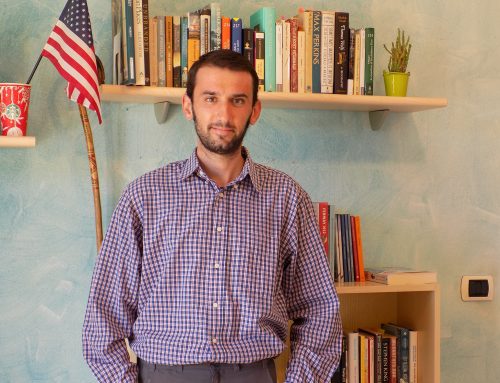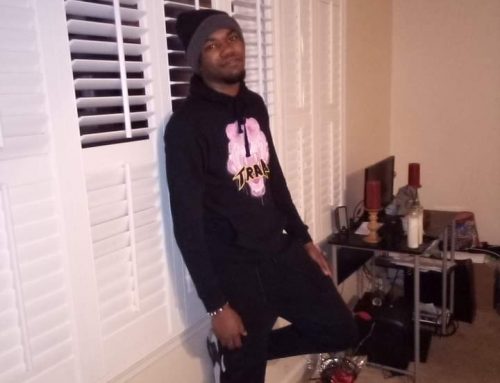Misadventures in Therapy
“Psychologists are just people who weren’t smart enough to be psychics.” – Gina Linetti, Brooklyn Nine-Nine
The above quote sums up my esteem for professionals in the mental health field. I don’t hold high regard for purported psychics, which makes my feelings toward therapists all the more damning. Achieving mental health and therapy often go hand-in-hand, but the latter does not guarantee the former and if I sound bitter, I have reason to.
I have suffered with an anxiety disorder in one form or another probably my entire life. I’ve dealt with depression since puberty; neither were diagnosed until much later. At the age of 15 I had my first of many panic attacks. At the time, no one could seem to discern what they were, including the psychologist my parents sent me to consult. The first session included the entire family – parents and sister – presumably to observe our family dynamic. I remember very little from that first meeting except that I actively made an effort to not listen lest I burst out in tears, and my sister having the psychologist in stitches while she intimated that I was doing this for attention. My next appointment with the therapist was one-on-one and she seemed keen on getting me to admit to some kind of physical, emotional, or sexual abuse (where none had occurred) to explain my sullenness and weird symptoms. Once a week, I had to take a bus afraid that “It” (what I later learned were panic attacks) could strike at any moment in order to answer inane questions from someone who had no clue what they were dealing with. Her suggestion was to spend more quality time with my father. Other than enjoying brunch and getting some sweet shoes out of the deal (my dad is an avid shopper), I had no idea how this would solve my predicament. But my parents’ insurance only covered 12 sessions, so on my final visit I was declared “cured” and sent on my merry way.
It took another year and a half before I was diagnosed with panic attacks by my GP. For the next ten years I trusted no one but my family doctor with my mental health. I reasoned, he diagnosed me after hearing my list of symptoms while emergency room doctors and psychologists remained baffled. One doctor had my mother give me the highest possible dose of Gravol every four hours as some sort of treatment for the stomach butterflies I could never adequately describe (I slept for two weeks only to be woken up to be given another dose of Gravol). Another doctor thought my ears were too clean (probably why I felt so light-headed) and may have an ear infection, so he had me blow into some kind of balloon through my nostrils to clear them up. To this day I’m shocked leaches were never prescribed! Once diagnosed, I felt a huge weight lift from my shoulders and was given 0.25mg of Xanax to be taken as needed. I took as little as possible as I feared becoming addicted. After one year, I stopped taking them altogether. I preferred to suffer with extreme anxiety and panic while I somehow made my way through college and university…barely. As I couldn’t skip work like I could school, I was given Paxil, which worked like magic (for about eight years) until it didn’t. I was then put on Effexor and when that didn’t work, I decided to take advantage of my company’s offer of twelve sessions with a psychologist. At least this time the therapist didn’t have to bother with a diagnosis, I had one handy. Talk therapy seemed to be her schtick with one minor hiccup, I don’t talk. I can talk, but you need to ask me a question first. I won’t babble just to hear the sound of my own voice, and I certainly won’t tell you my deepest, darkest secrets without at least some prompting (a little alcohol helps too). She used neither of these methods and so we spent most of our sessions together just staring at each other. She eventually told me that I didn’t seem to have any urgent need for her and to come back if necessary. Basically, I was kicked out of therapy because I was not a typical client and she didn’t know how to deal with me. Perhaps she could have used a different technique? Maybe refer me to a different psychologist? Nope. Two psychologists and both were useless; I was starting to have my doubts about the mental-health profession.
I continued bumbling my way through life grappling with what I now know to be dysthymia and agoraphobia with little two-week breakdowns along the way until the “Illness.” This was very much a physical illness that lasted a year and no one could diagnose it, including my GP. My workplace’s insurance company would not cover any sick leave, so I quit. After a few months of inability to put myself together, I sought outside help… from another psychologist. She had me fill out tests so I could be properly diagnosed (social anxiety, agoraphobia with panic disorder, major depression, dysthymia, suicidal ideation and schizoid). Finally! A professional who seemed to know what they were doing. She was a cognitive-behavioral psychologist, which I specifically sought out, since this research suggested that this mode of psychotherapy would be my best shot at recovery. She gave me homework to do which made sense. However, it would seem you can do therapy homework wrong, as she pointed out time and time again. After my initial visits, I became more and more depressed and she became less and less helpful. The insurance money had run its course and I had my first major depressive episode. I stopped taking my Cymbalta cold-turkey and refused to speak to anyone. My only consolation was the thought of death and the means by which I could achieve it with the least possible amount of pain. I was escorted to the emergency to see a psychiatrist. After less than five minutes with me, he offered a prescription for another anti-depressant. I was enraged that after a few preliminary questions he was ready to prescribe my problems away. This is when my respect for the profession died. I was entered into “the system” and would be contacted in the next three months as opposed to six (since mine was an urgent case) by another psychiatrist. At around the three month mark I was indeed contacted and returned to the psych ward of the hospital. I met with a psychiatrist and a psychiatric nurse, was given a bunch of forms and tests to fill out, signed-up for outpatient group therapy based on the principles of CBT, and given a prescription for Celexa. Group therapy was held four days a week, two hours a day, for a month. It consisted of discussing how we were feeling, changes in medication, a weigh-in, walks, trying various types of mindfulness techniques, and art therapy. Once my time with the group was over, I waited another three or so months to be reassigned to a psychiatrist who specialized in agoraphobia. Was I finally going to get the help I so desperately needed? No. He described methods with which I was intimately familiar (while not in continuous therapy, I was always reading about research and going through workbooks regarding anxiety, agoraphobia, and depression). He refused me any anti-anxiety medication and started me on a course of intense exposure therapy. The end result: I could no longer be alone in my own home. I returned to my GP, to Paxil, and to benzodiazepines. Eventually, I could cope with life again.
Every time I have sought help from the community trained to give it, my condition either worsened or at best, I was left no better than when I arrived. It’s no wonder I mistrust mental health professionals. In spite of this, and after some more investigating, I have decided to try again. I have interviewed a few psychologists and have been in therapy for the past month. I don’t want to jinx it, but I think she’s the one. She’s open-minded, knowledgeable, and easy to talk to. When I spoke to her, at long last, I felt heard. I think a lot of people enter the field of psychology with good intentions that eventually get lost in ridged philosophies at the expense of those seeking treatment. All the other therapists I had consulted had lost their ability to empathize with their patients. I understand why, but I will not excuse it. I deserve to be heard, I deserve to be validated, and I deserve to get healthy. We all do.
Mental Mews can be found on Instagram.
If you enjoyed this post, please take a few moments to leave a comment, or share with your friends using the share buttons below.





I’ve met some doozies in my therapy journey, and some wonderful therapists. I share your opinion, as finding the right person, the safe therapist that hears you, values you and sees you is a gift, and yes, there should be more out there.. including psychiatrists (whom, btw, I do not trust). My brother’s journey to the hospital sent him on this merry way without treatment. Mental Health professionals, hospitals and centers, need an overhaul.
I hope you keep finding solace, growth, healing and understanding with your new therapist. I admire you so much.
Kim